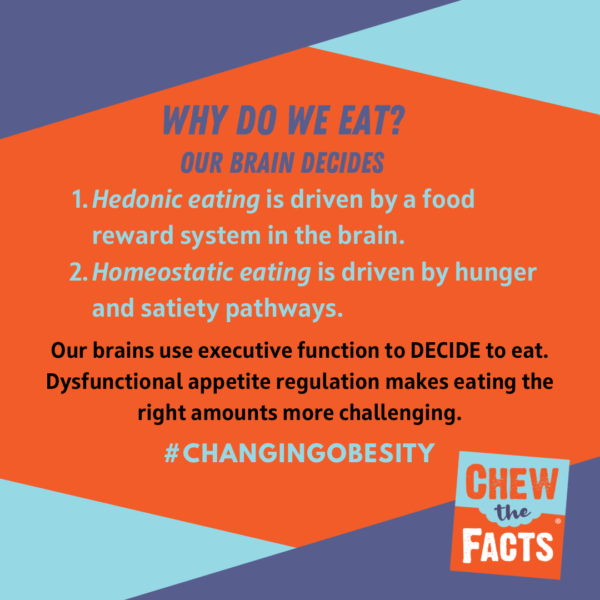I attended a virtual conference session sponsored by Novo Nordisk, but was not paid for this post. The thoughts and opinions voiced here are my own.
It’s Obesity Care Week. After decades of practice in the field of dietetics, it saddens me that there is still so much stigma about being overweight or obese.
It’s disheartening to know that the field of medicine has been slow to both truly understand, and effectively treat, weight and weight management.
I’ve always been empathetic to those who struggle with their weight. A multi-factorial approach is almost always necessary to deliver proper care. However, like many health professionals, I used to mostly view obesity as a symptom that resulted from overeating. While I acknowledged the potential genetic factors, I mostly focused on the excess calories and lack of movement over time.
New Theories on Obesity
Living through this pandemic, the media has used the phrase, “the science is evolving”, a few times. As scientists, we know that as more evidence emerges about a virus, strategies to control the spread and treat the disease change. The same is true in nutrition and obesity medicine.
We now know that in many cases, obesity is a disease that causes dysfunction in the regulation of appetite. Perhaps it’s time for practitioners to consider that in some cases obesity acts as a disease, not a cosmetic issue or one of self control (calories in, calories out). It’s also important that physicians continue their education in this area, if they are to give passionate advice, (here are a few of the tools, continuing education and resources that can support their patients with obesity).
Short-term solutions, frustrations with weight regain and shame, are just a few of the things that discourage people suffering with obesity from continuing to seek care. We know that behavior change is difficult, but it may be more than just getting to the point of “I am ready and I want to”. Emerging research indicates that our brains control a lot of the signals that physically tell us it’s time to eat, or stop eating. In obesity, it’s suggested that this signaling system doesn’t work properly.
Overeating is not always the culprit. A dysfunction of appetite regulation in obesity often causes overeating. #ChangingObesity Click To TweetHormones and Appetite Regulation
New research is emerging about the brain’s involvement in regulating hormones that control appetite. For example, your brain is signaled to release leptin when your stomach is full in a functional appetite control system. In obesity, this signal is not functional. This may then lead to overeating. In addition, ghrelin – the “I’m hungry” hormone – may be working overtime, leaving you with constant hunger pangs and no satisfaction.
To make matters more frustrating, after you lose significant amounts of weight, the “feeling full” signals decrease, and ghrelin (the hunger hormone) often increases!

Another point of interest is the peptide, GLP-1 (glucogon-like peptide-1). Scientists are finding that GLP-1 may have an important role in appetite regulation, acting as both a hormone and neurotransmitter. GLP-1 is involved in the signaling to the brain about whether you should eat, or if you’re full. Researchers are finding that GLP-1 may be involved in decreasing hunger (homeostatic eating), decreasing signals in the food reward system (hedonic eating), and increasing our ability to feel full. The development of medications involving GLP-1 could be really helpful.
Asking for Help
If you are struggling with your weight, ask for help. Don’t be ashamed to ask your health care provider for treatment options that may include a metabolic weight loss program, counseling with a dietitian, and medication that helps control the appetite system in your body.
Like many diseases, it’s with you forever. Fad diets or quick weight loss programs are not the best long-term solution. Once you’ve lost the weight, keeping it off is often an even bigger challenge. Here’s one reason why: Obesity researchers have found that 12 months following weight loss, your body may actually releases more hormones that make you feel hungrier. Therefore, support is essential. Regular follow-up with your dietitian, or look into support groups such as TOPS.
Sometimes Medicine is Required
Here’s the tricky bit about weight loss. Once you lose the weight, your body will fight to regain the weight if the regulation system isn’t corrected. Measures like healthy eating, portion control, physical activity, behavior change are certainly still important. However, adding medicine that helps to decrease appetite and increase fullness, may end up being really helpful as well.
When you begin to view obesity as a disease, you might compare the care given to other disease care models. When a person’s body does not regulate blood pressure or blood sugar properly, they are diagnosed with hypertension or diabetes. If their body doesn’t respond to robust lifestyle changes or diet, a physician doesn’t hesitate to add medication to the disease management. (Sometimes the diet therapy is not completely prescribed and the physician doesn’t refer to the registered dietitian for counseling).
However when it comes to obesity therapy, practitioners rarely discuss medication.
Stay tuned. There’s still a lot to learn, and developments are on the horizon. Obesity scientists are learning more and more from theoretical models of metabolism. These studies can potentially bring new medical solutions that can compliment diet and behavior therapy.
Learn More
Learn more about why weight matters, what causes it, and how to find a provider here. You can also check out the International Weight Control Registry. This program helps researchers learn from your or your patient’s experiences, so they can improve treatment programs.




